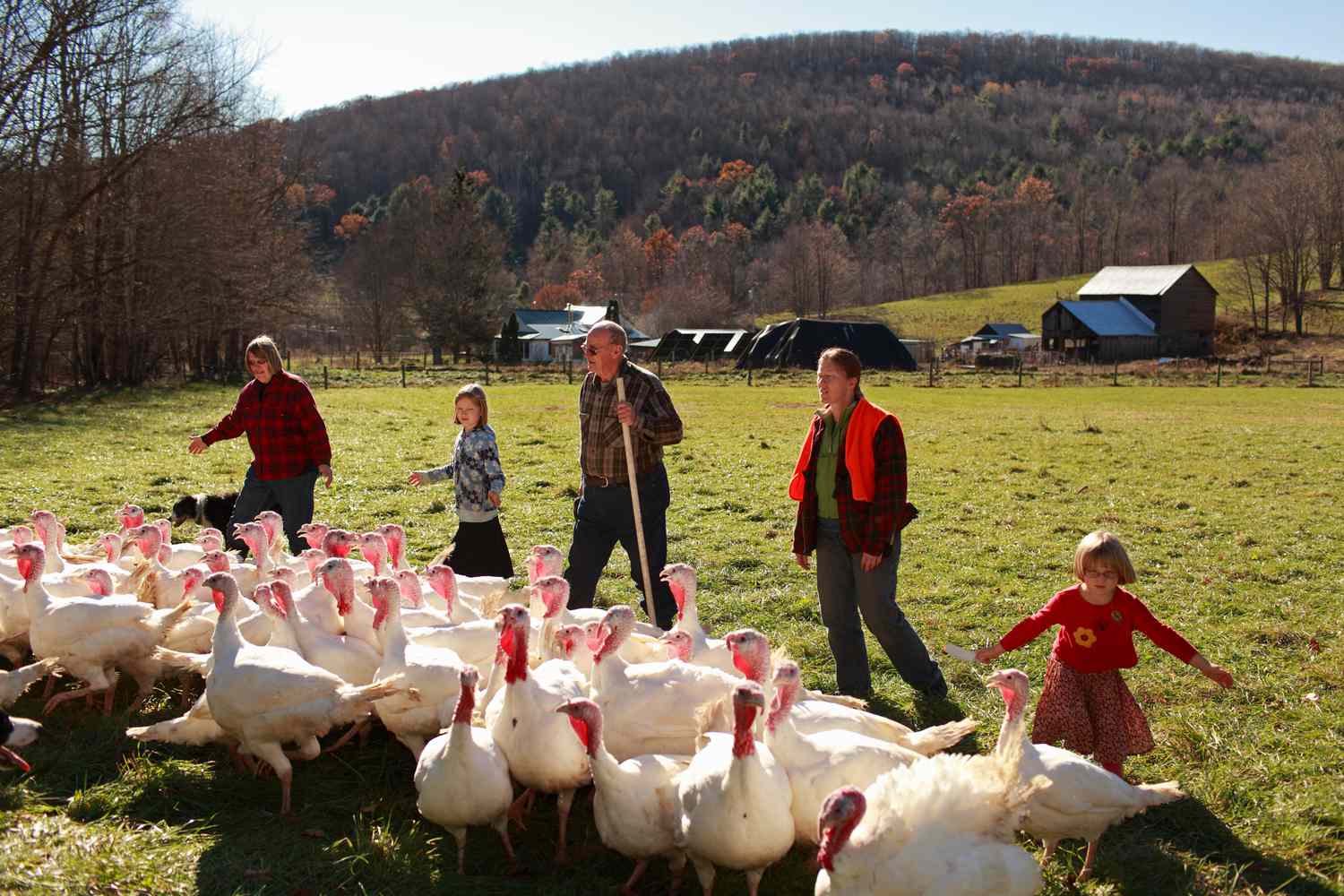Turkeys is normally a pleasurable, worthwhile addition to a small farm or homestead. They’re typically raised for meat, although some people want to keep a “tom” (a mature male turkey) spherical as a pet. Sooner than you resolve in order so as to add turkeys to your farm, listed under are the basics of elevating turkeys the right method.
Should You Elevate Turkeys?
Elevating turkeys is very similar to elevating chickens—nevertheless turkeys require a bit further babying, notably as poults (youthful turkeys). They’re moreover social with individuals, much more so than chickens, so you could have to be ready to spend some time collectively together with your birds each single day.
Choosing a Breed
The next step is to choose the right breed. Broad-Breasted Whites are the “fashionable” consuming turkey, very similar to these you uncover throughout the grocery retailer (nevertheless even this breed, raised on pasture on a small farm, will fashion far more flavorful than the grocery retailer choice). Regular Bronze and White Holland varieties are moreover widespread breeds for meat manufacturing.
Broad-Breasted Bronzes and Whites are normally not exact breeds, solely a non-standardized industrial strain used for meat, whereas White Hollands and Regular Bronzes are acknowledged breeds. Heritage turkeys embrace Bourbon Reds and Narragansetts; the latter are hanging, medium-sized birds that excel at foraging and pest administration. Royal Palm turkeys develop to a smaller accomplished dimension of roughly ten to sixteen kilos and are beautiful, different-looking birds.
Elevating Turkeys From Poults
Generally, chances are you’ll be starting with day-old turkeys throughout the spring, known as poults. It would be best to organize a brooder house an identical to you’d for chickens. There are numerous do-it-yourself ideas for brooder areas, from a feeding trough to a kiddie pool.
Much like starting chicks, you will want to take care of the brooder house between 90 and 95 ranges F for the first week, then slowly lower the temp by elevating the lamps, cooling it by 5 ranges F each week. Plenty of the an identical areas that promote chicks moreover promote turkey poults.
Housing and Fencing Turkeys
Make a plan for housing and fencing your turkeys. Many farmers let their turkeys reside outdoor on range in a giant fenced pen with a movable roost assembly, similar to a movable hen coop. The simplest range for turkeys is temporary grass. Pink clover and Kentucky bluegrass are notably good grasses to have on the range. For a flock of a dozen turkeys, plan to assemble a pen of roughly 75 ft sq., or one-eighth acre. Be sure your fence is protected from coyotes, foxes, and raccoons—all of whom would love free-range turkey dinner. Woven wire fencing is an excellent choice, as is galvanized poultry netting.
Preserve the pasture up to date by transferring the transportable roost to wash ground weekly. You’ll be able to even rotate the position of feeders and waterers to cease manure buildup.
Feeding and Watering Turkeys
Prime off on the offers you could have to feed and water your turkeys. For a dozen turkeys, it’s your decision on the very least 2 gallons of water each single day, so ponder an computerized waterer associated to your outdoor water spigot. A four-foot-long waterer will suffice for 12 birds. Many turkey farmers assemble a picket range feeder with considerably roof on excessive to hold the feed. A feeder that holds about 100 kilos of feed is an efficient dimension for 12 turkeys, as by the purpose they near maturity they could each eat a pound of feed a day.
Stopping Turkey Points and Diseases
Learning discover ways to cease effectively being points sooner than they arrive up—with clear pasture, movable roosts, and up to date, clear water and meals—is the only technique to cope with elevating turkeys. Nonetheless, typically points happen and you’ll have to know discover ways to deal with them. Give turkeys ample roosting space and pasture. Be sure to spice up them individually from chickens. Assure your turkey dwelling has good air circulate, and defend your turkeys from predators.
